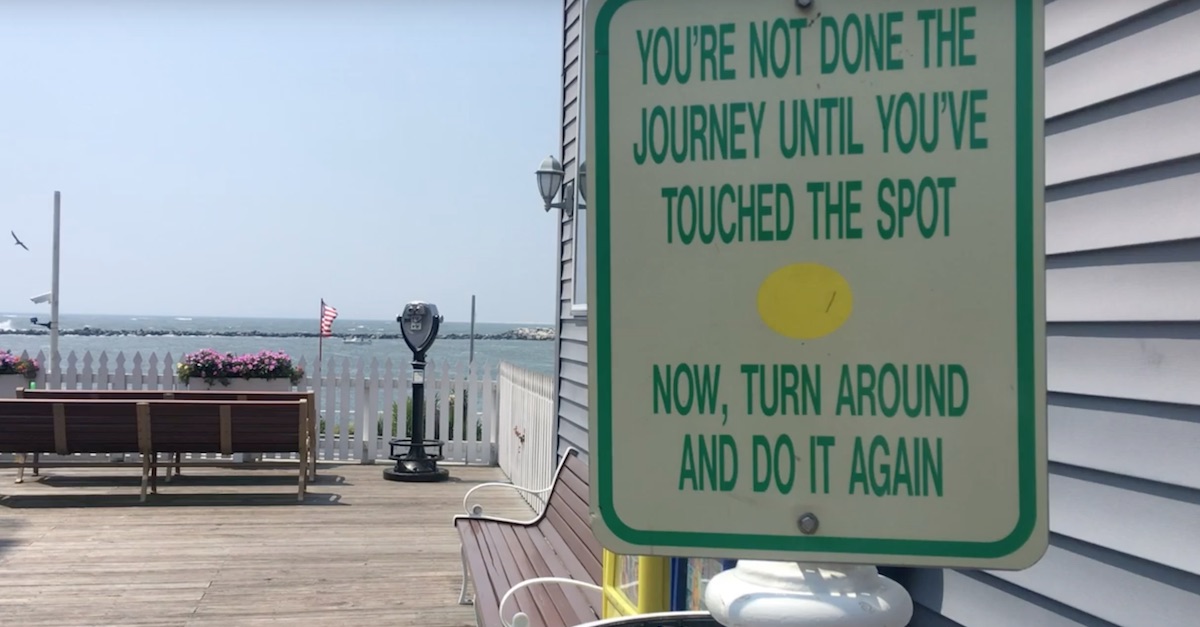
A federal appeals court in Virginia refused to strike down an ordinance banning women but not men from going topless on public beaches in Ocean City, Maryland, finding that the law does not violate the Equal Protections Clause of the Constitution.
A three-judge panel on the U.S. Court of Appeals for the Fourth Circuit on Wednesday held that despite treating men and women differently under the law, the ordinance passed constitutional scrutiny because the Ocean City Council had a legitimate interest in the “protection of public sensibilities” presented by topless women on the family-oriented beaches.
The ordinance in question states: “It shall be unlawful for any person to be on the beach, boardwalk, public parks, parking lots, streets, avenues, alleys or any other public place with the person’s specified anatomical areas nude or in a state of nudity.”
One of the “specified anatomical areas” is “a female breast below a point immediately above the top of the areola.”
Several female Ocean City beachgoers, Chelsea C. Eline, Megan A. Bryant, Rose R. MacGregor, Christine E. Coleman, and Angela A. Urban, filed a lawsuit against the city claiming the ordinance unlawfully discriminated against women by only permitting men to take their shirts off in public.
The city council has maintained that the aim of the ordinance was to protect the popular summer vacation spot’s family-friendly image.
“Protecting the public sensibilities is an important governmental interest based on an indisputable difference between the sexes,” the city council wrote in an explanation accompanying the ordinance. “Further, a prohibition against females baring their breasts in public, although not offensive to everyone, is still seen by society as unpalatable.”
The circuit court’s decision upheld a lower district court’s ruling that allowed the ban to remain in effect.
“We agree with the district court that Ocean City has established that prohibiting females from publicly showing their bare breasts is substantially related to an important government interest—protecting public sensibilities—and satisfies the heightened scrutiny of the Equal Protection Clause,” Judge A. Marvin Quattlebaum Jr., a Donald Trump appointee, wrote for the unanimous court.
The court cited to a 1990 Fourth Circuit ruling in U.S. v. Biocic, which upheld a woman’s conviction for intentionally appearing topless on the beach of a Natural Wildlife Refuge.
“Plaintiffs acknowledge Biocic and the other courts that have expressed the same view. They ask us to overrule Biocic, however, largely suggesting it represents a viewpoint that is outdated at best and misguided at worst,” Quattlebaum wrote. “To be sure, public attitudes about gender and sexuality are constantly changing and evolving. But our precedent has not changed. As a three-judge panel, we may not overrule Biocic, and it has not been overruled by the Supreme Court.”
Judge Roger Gregory, a Bill Clinton recess appointment who was renominated by George W. Bush, concurred in the judgment but wrote an opinion urging a reconsideration of precedent.
“This case raises the question of how we distinguish between the types of disparate treatment justified by a community’s public sensibilities and those that are not,” he wrote. “By treating women’s breasts (but not those of men) as forbidden in public sight, these laws may reduce women’s bodies to objects of public gaze, reproduce the Victorian-era belief that women should be seen but not heard, and reinforce stereotypes that sexually objectify women rather than treating them as people in their own right.”
The debate over female’s going topless in public has increasingly become a point of contention in recent years.
For example, a 1992 ruling from the Second Circuit held that women who panhandled topless could not be arrested for indecency because panhandling is a form of speech protected by the First Amendment. The city has since attempted to put several “time, place, and manner” restrictions on female toplessness.
Attorney Devon M. Jacob, who represents the female plaintiffs in this case, did not immediately respond to an email from Law&Crime.
Read the full ruling below.
[image via PennLive/YouTube screengrab]